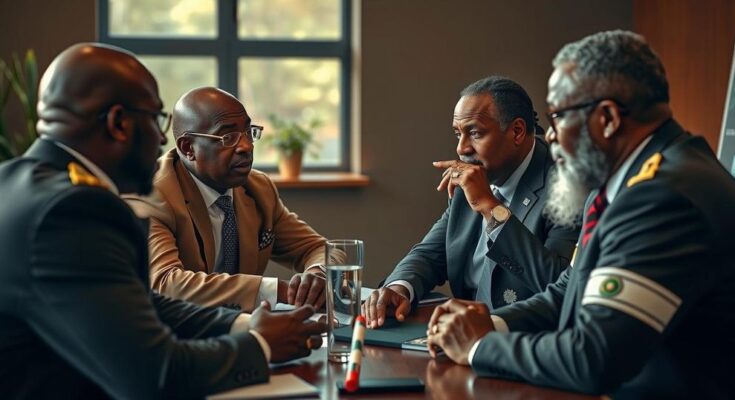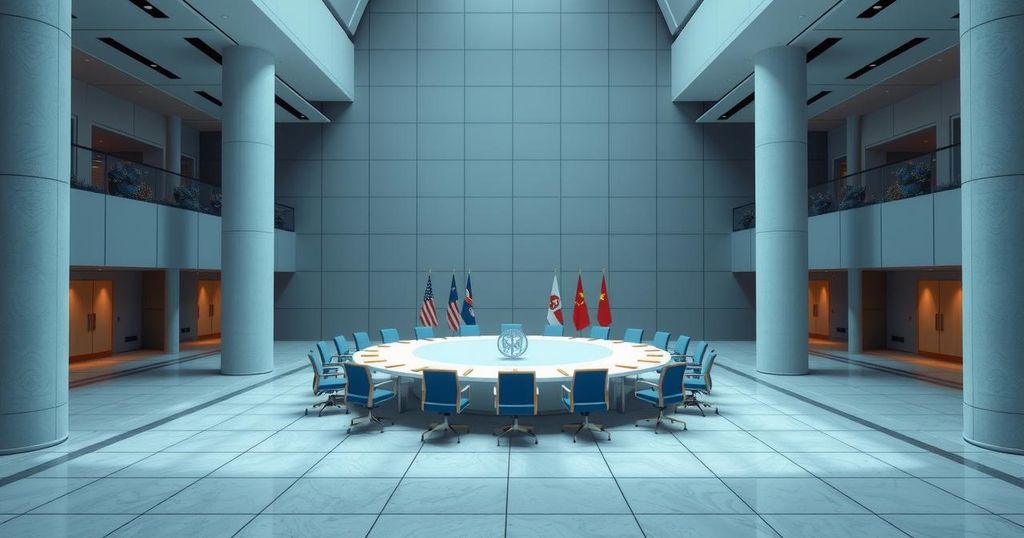South Sudanese factions are set to hold peace talks in Nairobi aimed at integrating holdout groups into the 2018 peace process, which sought to end years of conflict. Key participants include NAS, SSUF, and R-SPLM, with support from IGAD. Concerns regarding slow implementation and funding challenges persist as these negotiations commence, following a commitment from Kenyan President William Ruto to resume talks.
On November 13, 2024, representatives from the South Sudanese government and various holdout factions are scheduled to initiate a new phase of peace negotiations in Nairobi. These discussions intend to include factions that abstained from endorsing the 2018 peace agreement, specifically the National Salvation Front (NAS) led by Pagan Amum, the South Sudan United Front (SSUF) under former army chief Paul Malong, and the Real Sudan People’s Liberation Movement (R-SPLM) led by Stephen Buay. Diplomats indicate that the Intergovernmental Authority on Development (IGAD) will play a significant role in facilitating this process. Notably, these talks will seek to reinforce the existing 2018 agreement rather than supplant it, amidst concerns regarding the sluggish implementation of prior commitments and financial resource constraints that could threaten the peace efforts. The resumption of dialogue was affirmed by Kenyan President William Ruto during his recent visit to Juba, South Sudan’s capital.
The ongoing conflict in South Sudan has its roots in a complex interplay of political, ethnic, and social tensions that escalated into violence following the outbreak of civil war in 2013. The 2018 peace agreement, which was a vital step towards peace, was signed by key leaders, President Salva Kiir and opposition leader Riek Machar, but excluded several factions that continue to oppose the government and engage in combat. The inclusion of these holdout groups in new peace talks is essential for a comprehensive and lasting resolution to the conflict, as their absence poses a significant barrier to national stability.
In conclusion, the upcoming peace talks in Nairobi represent a crucial opportunity for reconciling the remaining factions in South Sudan that have thus far remained outside the framework of the 2018 agreement. The involvement of IGAD and acknowledgment of the previous accord by the parties indicate a willingness to pursue a unified approach to peace. Nonetheless, the success of these negotiations will heavily rely on addressing the concerns related to implementation timelines and funding issues which could hinder progress.
Original Source: sudantribune.com




